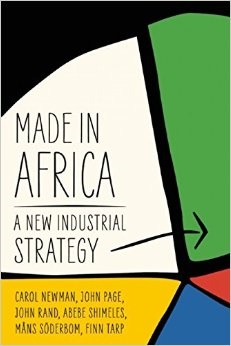In the media
Made in Africa book mentioned in Nigerian newspaper 'Business Online' column
While some policy makers in Nigeria talk about the need to industrialize and diversify the economy through substituting foreign imports with locally-made goods, others talk about promoting non-oil export.
In his latest Business Online column ‘If Nigeria truly wants to industrialize, it must be export-oriented’, economist, Olu Fasan, calls for a for a clear definition of what economic diversification means in Nigeria. He points out that ‘policies needed to achieve import-substitution industrialization are quite different from, and contradictory to, those required to achieve export-oriented industrialization, and if you try to pursue both objectives together, you end up with a complete policy failure.’
Throughout the column Fasan discusses this contradiction and refers to the recently-published book Made in Africa to emphasize the need for export orientation and competition if industrial productivity wants to be raised.
Read the article on Business Online
About the book

Made in Africa: Learning to Compete in Industry is the result of a collaborative research effort involving UNU-WIDER, Brookings Institution, and the African Development Bank. It proposes a new strategy for Africa to get its fair share of the global market and compete effectively. While traditional concerns such as better skills, improved infrastructure, and regulatory reforms are important, they alone will not be sufficient for Africa to industrialize. For Africa to be able to compete, policies to promote exports, build the capabilities of domestic firms and foster industrial clusters will be needed.
The book Made in Africa: Learning to Compete in Industry is part of UNU-WIDER’s Learning to compete (L2C) project undertaken in partnership with the Brooking Institution and African Development Bank.
 Join the network
Join the network